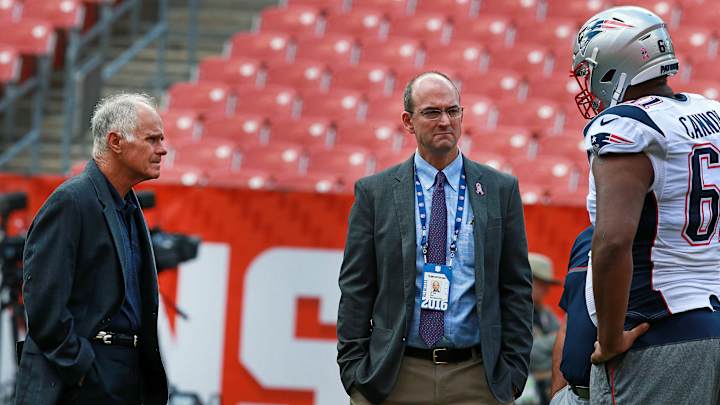Harvard study: NFL should end doctor-team relationships

A study conducted by Harvard Law School recommended that any medical personnel treating NFL players should stop reporting to team management or coaches.
The two-year study by the Petrie-Flom Center at Harvard Law School resulted in a 493-page report released on Thursday called "Protecting and Promoting the Health of NFL Players: Legal and Ethical Analysis and Recommendations." The study sets out to protect and promote the health of NFL players.
"The intersection of club doctors’ dual obligations creates significant legal and ethical quandaries that can threaten player health,” the report says.
In Sports Illustrated's special report "Football In America," legendary orthopedic surgeon and Redskins team physician Dr. James Andrews noted the complicated relationship between the team doctor and the coaches weighed against his duty to the players and their health.
"Coaches don’t want to do anything that decreases performance level," Andrews said. "They have a taboo about even talking to a team doctor. Maybe they’re afraid that brings them bad luck. We’re there to help them."
Among the 76 recommendations of the study include the NFL and NFL Players Association not using health issues in collective bargaining negotiations and allowing players with diagnosed concussions to be placed on a short-term injured reserve list that doesn't count against the team’s 53-man active roster.
• Dr. James Andrews: You have to trick coaches to attend injury-prevention talks
In a section of the current CBA concerning the players' rights to medical care and treatment it states that “each Club physician’s primary duty in providing player medical care shall be not to the Club but instead to the player-patient.”
The NFL largely disagreed with the study's finding, sending a 33-page response denying that NFL doctors have conflicts of interest. Jeffrey Miller, the league's executive vice president of health and safety, called the study's proposed changes "untenable and impractical."
“I had expected we’d maybe be quibbling around the margins of how it would actually be implemented,” said Holly Fernandez Lynch, the executive director of the Petrie-Flom Center and one of the report’s authors. “I did not expect that we would have to have this conversation about whether there is, in fact, a conflict because it’s so obvious on its face.”
The research was funded by the NFL Players Association, with Harvard saying that the research was independent of player or NFL influence.
– Scooby Axson
